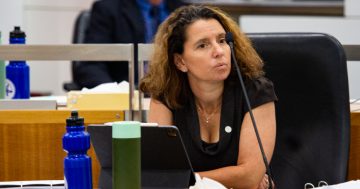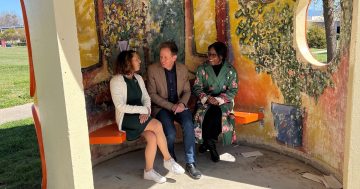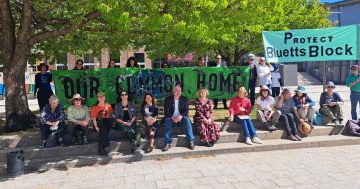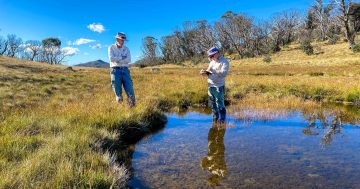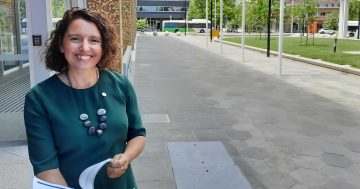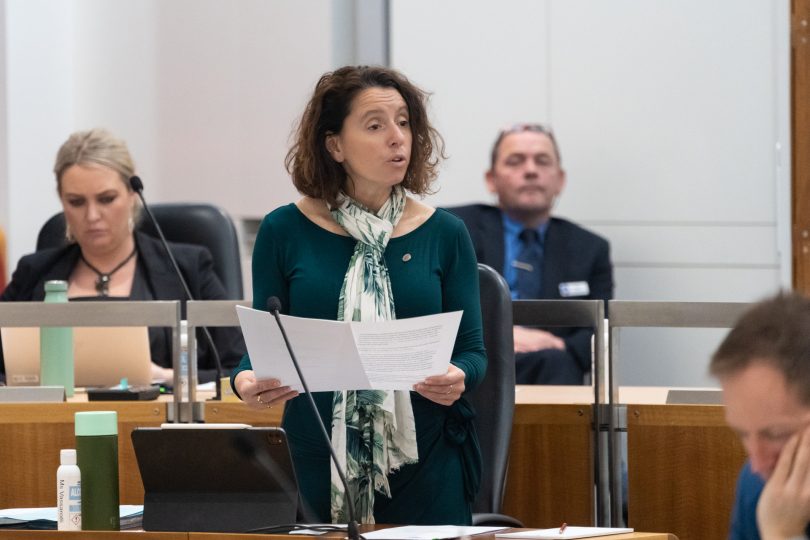
Heritage Minister Rebecca Vassarotti has outlined her expectations for the interim Heritage Council. Photo: Region.
Active engagement with First Nations peoples and consideration of climate change have been outlined as key priorities to be considered by the interim Heritage Council when making decisions around the Territory.
The ACT’s Heritage Minister has made it clear exactly what she expects from the interim Heritage Council in a statement of expectations, which has been designed to provide “guidance and clarity” to the council on the expected priorities, standards and outcomes to be delivered while the interim team was operating.
A review into the original Heritage Council had found, among other issues, that members did not have a “unified understanding” of priorities and governance processes.
“As the responsible Minister, this statement of expectations sets out my expectations of how the council and its members will operate, behave and represent themselves in performing their collective and individual functions,” Rebecca Vassarotti said.
She outlined 10 heritage priorities that she expected to be delivered.
These included restoring trust and confidence in both the council and ACT Heritage, strengthening the role of First Nations peoples, promoting the value of heritage through the Heritage Festival and its grants program, and considering environmental, climate change and building code drivers in heritage conservation.
“[This includes] sympathetic options that achieve both heritage conservation and other objectives, and management decisions and policy that are balanced, contemporary and more climate-ready,” Ms Vassarotti outlined.
“These are ‘live’ priorities and I recognise that they may require review in response to changes in the government’s position or within the council’s operating environment.”
Ms Vassarotti noted that the ACT Government is “committed to delivering climate change, sustainability and emissions reduction” alongside heritage conservation outcomes.
This meant she expected the interim Heritage Council to take both into consideration when making decisions.
“A balance must be struck so that heritage buildings and places can retain their character and other attributes that heritage listing seeks to conserve while being adapted to suit the needs of present and future occupants and ensuring they are accessible for all,” Ms Vassarotti stated.
She outlined other specific government policies and strategies that the council – an independent body – needed to take into consideration, including the ACT Planning Strategy, the importance of cultural and heritage visitors to the Territory’s tourism industry, and the implementation of the National Construction Code (NCC) 2022, which includes the Liveable Housing and Energy Efficiency Provisions.
“Council must be aware of and informed by the NCC 2022 and consider how its provisions may impact heritage buildings,” Ms Vassarotti stated.
“Through these standards, the government is supportive of sympathetic renovations of heritage residential buildings and adaptive reuse of heritage buildings to meet contemporary standards of accessibility and energy efficiency.”
First Nations engagement was also outlined as a “key priority”, with Ms Vassarotti stating traditional custodians should play a “significant role” in the conservation and management of their cultural heritage, the preservation and conservation of places and objects, and in the planning and development of their traditional lands.
“I expect the role of Traditional Custodians and the consideration of First Nations cultural heritage to be front and centre in the council’s approach,” she said.
The interim council is expected to deliver an annual report outlining progress against the statement of expectations by 31 October.
The Heritage Council has an embattled history, with the entire original cohort sacked towards the end of last year after professional and structural issues were discovered.
An inquiry into the Heritage Council and ACT Heritage Unit was also conducted.
The interim Heritage Council will be in place until at least April 2024. A review into heritage arrangements is ongoing.
The final report from that review is expected to be delivered to Ms Vassarotti by early next year, with a new council to be appointed based on its outcomes.













